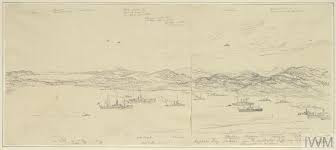Sofia Flora Cooke Yarborough was born on 18th November 1855 in Middlesex, England, UK. Her parents were Charles C. Yarborough, a retired British Army Lieutenant-Colonel, and his wife, Ester Ann.C. Yarborough.
In 1887, in Tonbridge, Kent, UK, Sophia married widower and British Army Officer Grey Townsend Skipwith (1838 – 1900) who had 8 children by his previous wife.
Sofia and Grey lived in India and had two children - Flora Blanche Skipwith, born in India in 1889 and Charles Grey Yule Skipwith, born in India in 1890. Charles also joined the British Army. Sofia’s husband died in India in 1900.
When war broke out, Sofia joined the local VAD and turned her home – Loversall Hall in Doncaster, Yorkshire, UK - into an Auxiliary Hospital which was opened in 1914 and had 100 beds. Sofia was the Hospital’s Commandant.
One anonymous soldier-poet wrote of Loversall Hall:
“The stately homes of Britain…
Where many a high-born beauty her gracious warfare raged,
Men at the call of duty, lie broken, maimed and aged,
And many a man is living,
Who for his death has prayed,
Thanks to his maker giving
That he the woman made.”
Sofia’s daughter, Flora Blanche Skipwith, also served in her Mother’s hospital in WW1, as did the writer and poet Barbara Euphan Todd (1890 – 1976) – best known for her ten books for children about a scarecrow called Worzel Gummidge. Having initially worked on the land, Barbara worked at the Hospital from 12/12/1917 until 15/02/1919
Sophia helped hundreds of soldiers, kept in touch with many of them when they returned to the front line, and was awarded an Order of the British Empire (OBE) for her war work.
Sofia died on 19th December 1940. Her Obituary was published in the “Yorkshire Post and Leeds Intelligencer” on 24th December 1940.
Loversall Hall
Built by the Fenton Family of Leeds between 1808 and 1816, Loversall Hall is situated in the heart of the beautiful South Yorkshire Countryside within the village of Loversall just on the outskirts of Doncaster.
OBE
The Most Excellent Order of the British Empire is a British order of chivalry, rewarding contributions to the arts and sciences, work with charitable and welfare organisations, and public service outside the civil service. It was established on 4th June 1917 by King George V and comprises five classes across both civil and military divisions, the most senior two of which make the recipient either a knight if male or dame if female. There is also the related British Empire Medal, whose recipients are affiliated with, but not members of, the order.
The five classes of appointment to the Order are, from highest grade to lowest grade:
Knight Grand Cross or Dame Grand Cross of the Most Excellent Order of the British Empire (GBE)
Knight Commander or Dame Commander of the Most Excellent Order of the British Empire (KBE or DBE)
Commander of the Most Excellent Order of the British Empire (CBE)
Officer of the Most Excellent Order of the British Empire (OBE)
Member of the Most Excellent Order of the British Empire (MBE)
 |
| OBE |
Sources: Find my Past, FreeBMD
https://www.myheritage.com/names/grey_skipwith
https://www.findagrave.com/memorial/192636041/sophia-flora-skipwith
https://www.doncasterfreepress.co.uk/news/new-exhibition-reveals-doncaster-womens-role-in-first-world-war-475964 14th Jul 2016
https://www.harnessproperty.com/listing/79cc4bb1-4e49-5b9c-807b-8ef3d2b5fa02














